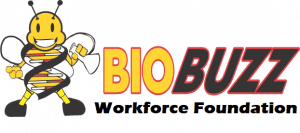
Image / Pixabay
“There’s Gold in Them Thar Hills!” – VC Funding
Floods BioHealth Capital Region in 2021
Since the beginning of the global pandemic, capital has flowed into the BioCapital Health Region. Billions of dollars from Operation Warp Speed, as well as private venture firms, have poured in to support startups, as well as companies focused on pandemic responses.
In the third quarter of 2021 alone, more than $400 million of private capital was invested in Maryland businesses. The money went to more than 34 different companies, according to data compiled by PitchBook. The deals brought the state to about $1.6 billion in funding for the first three-fourths of the year and placed Maryland on track to bring in about $2 billion worth of VC funding for the year. That was a significant jump over 2020, when Maryland saw about $1.26 billion in VC funding. For the industry at large in 2020, VC activity in biotechs grew by 45% to $36.6 billion.
The backing of venture firms is critically important to the mission of a company, especially as that company begins to move forward into clinical trials. In the case of Rockville’s American Gene Technologies (AGT), not only is the feasibility of the science critical to garnering financial backing, but also the community for which that science serves. AGT‘s lead asset is the cell therapy candidate AGT103-T, which the company believes has the potential to be a curative therapy for HIV. AGT103-T is showing such promise, that Gaingels, a leading venture investment syndicate in service of the LGBT+ community and its allies, joined the syndicate of investors backing the company. Gaingels made an undisclosed investment in the company.
With an investment network of more than 1,000 backers and a portfolio of more than $150 million invested in over 300 companies, Gaingels focuses on high-growth venture-backed companies that embrace LGBT+ leadership.
When Gaingels joined the AGT team, Jeff Galvin, founder and chief executive officer of the company, expressed his excitement about the backing, calling it “symbolic.”
“Our science, mission, and team present opportunities and products that uplift everyone without regard to background, lifestyle, or identity,” Galvin said.
AGT’s Gag-specific AGT103-T is a genetically modified cell product made from an individual’s own cells and administered to patients with an ex vivo lentiviral vector-based gene therapy. In August, AGT103-T passed a significant safety hurdle when the Data Safety and Monitoring Board unanimously supported the continuation of a Phase 1 study without any modifications. In November, that safety momentum continued with the dosing of the third patient in the study. The DSMB voted unanimously to continue the trial at its current pace and eliminate the need for a DSMB review between the dosing of each patient.
AGT anticipates the dosing of three additional patients by the end of the year. With its verifiable trend of safety data being established, AGT believes it will begin to see objective efficacy biomarkers in the patients that should provide data that will indicate if the company is on track to a functional cure of HIV in a patient. Such data would bring additional investors to the company and could also pave the way for AGT to aim for an initial public offering – similar to MaxCyte, which raised $175 million when it listed on the Nasdaq in July.
AGT isn’t the only Maryland-based company to see its financials bolstered by the backing of venture capital. One Maryland company that certainly benefited from an infusion of venture capital this year was Gaithersburg-based Siranomics Ltd., which raised $105 million in a Series E financing round. Funds were earmarked to finance its lead assets, STP705 and STP707, dual targeting siRNA therapeutics aimed at TGF-β1 and COX-2 for the potential treatment of either local or systemic administration to treat various types of cancers and fibrotic diseases.
In addition to backing the development of its lead assets, Siranomics noted that the financing will also be used to strengthen its large-scale manufacturing capacity to support the company’s fast-growing product pipeline at different clinical stages
In Riverdale, Medcure, Inc. raised $7.4 million in private equity to support its FDA-approved line of hemostatic and wound treatment assets.
While Maryland is on track for $2 billion in VC funding by the end of the year, the life sciences ecosystem of Philadelphia will surpass that. In the first quarter of 2021 alone, there was more than $2.9 billion in investment across 16 companies by the end of the first quarter of the year, according to research from biopharma database company DealForma. Some of the raises include $88 million in Series A by Aro Biotherapeutics; $59 million in a Series B raise by CARISMA Therapeutics; $160 million raised by Century Therapeutics in a Series C financing round; $173 raised by INOVIO Pharmaceuticals; $154 million raised by Passage Bio; and $116 million raised by Renovacor, Inc. That quarterly raise followed a successful 2020. In that year, the Philadelphia region’s life sciences industry saw a record number of initial public stock offerings with six companies rolling out IPOs totaling nearly $70 million.
In Virginia, ReAlta Life Sciences closed a Series A3 financing of $20 million in April. Backed by Marathon Pharma and undisclosed investors, ReAlta indicated it will use the funds to advance multiple programs addressing Acute Lung Injury (ALI) and Hypoxic Ischemic Encephalopathy (HIE). That includes the company’s lead asset RLS-0071, a Phase 2 experimental drug focused on HIE. RLS-0071 has been granted Orphan Drug Designation by the U.S. Food and Drug Administration.
With 2022 on the horizon, VC funding is expected to remain a significant financing option for life sciences companies. Whether or not it continues at the same rate remains to be seen.





